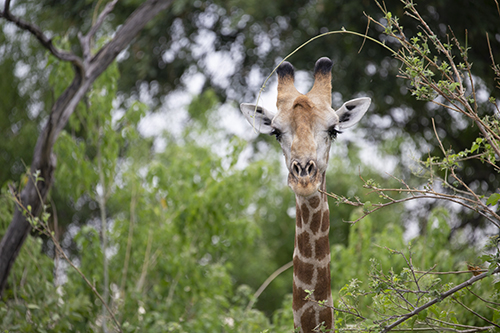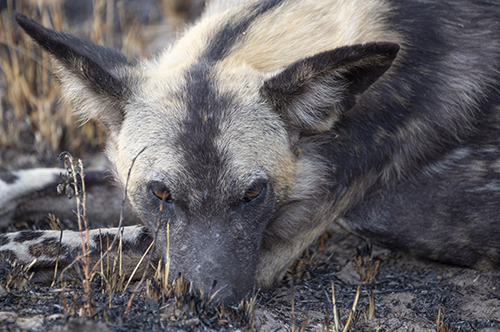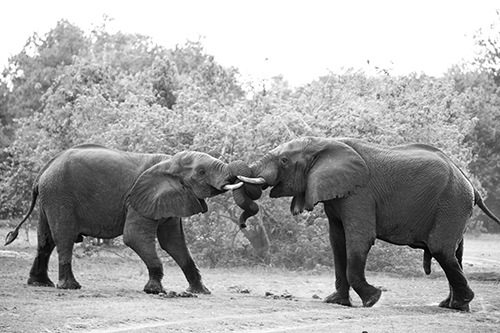The flight from camp Kalahari to camp Khwai reveals a completely different scene. The Kalahari is a desert; the landscape below stark and vast. Everything is a shade of brown. It’s a difficult place for most animals to survive. Zebras and wildebeest appear in droves in the wet season, having migrated for greener grass to eat as their more permanent residence regrows. Any other animal is more of a mission to seek out. Guides in the Kalahari have to be even more knowledgeable, treating every sound, every dropping, every track, and every plant as a clue.




Khwai, on the other hand, gets plenty of rain. The land is rich with plant life. Here, our guide tells us, branches are the most dangerous thing. Before we even hit the Moremi park, our destination for the first drive, we see a dozen hippos cooling off in the water. A moment into the park and we see a baboon scurrying up a tree, it’s baby wrapped with all fours around its stomach. Impalas, antelopes, giraffes, buffalo, waterbuck, zebras, wildebeest, and warthogs are next, many with their young. Driving along a burnt patch, we see wild dogs. We know this is a great spot when our guide whips out his camera and starts shooting. There are only 3,000 left in the world, he tells us, and they’re very rare to see.
As we’re leaving, we come across elephants. They’re so massive and enchanting; gentle giants at the watering hole. Two male elephants start to play, or so it seems. They lock tusks and start rearing each other, yelling, throwing their trunks. It’s an act of dominance, and they push back behind the brush. Testosterone is flowing when one elephant reemerges, spotting our truck. He’s not going to let any animal, alive or diesel-fueled, get in his way. Our driver revs the engine to warn the other elephants to stop moving. If this elephant starts to charge, they’d be directly in our path of escape and we’d be trapped. The elephant roars and mock charges the truck. We stand our ground, it turns, and we drive away unscathed. Branches are not the most dangerous thing in Khwai.



